Chef Ranveer Brar’s journey from the streets of Lucknow to becoming the youngest chef at a five-star hotel
Celebrity chef Ranveer Brar speaks to YS Weekender about his love for food, his life, and his duties as a chef beyond the kitchen.
Ranveer Brar, with his cult celebrity status and many television shows under his name, has put India on the global culinary map.

Food completes that circle of creativity, passion, happiness, and joy. I believe that food has the power to stimulate all senses in a manner which is beyond what anybody or anything else can do. And one of the biggest triggers of food is memory."
Ranveer says he is a hopeless romantic who believes that memories should live on and pass on to the next generation. "For instance, the way my mother and grandmother cooked in the chullah or the handi should not be forgotten,” he explains.
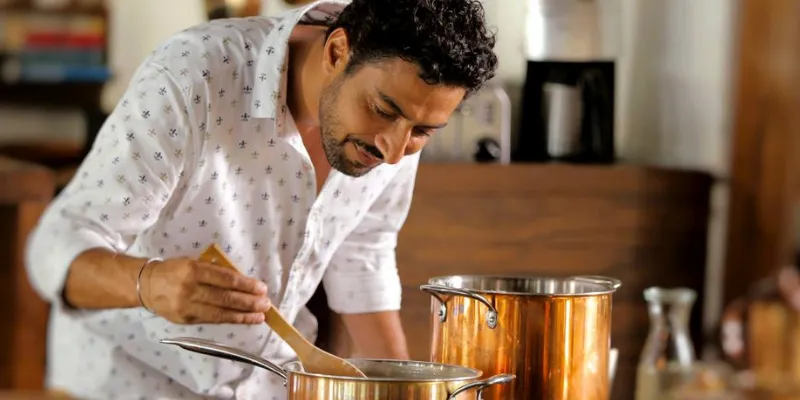
Ranveer Brar
Today, Ranveer is a chef, television host, MasterChef India judge, and a food stylist.
To explore this intrinsic relationship between food, travel, and memories, YS Weekender caught up with the celebrity chef, a maverick culinary legend who ran away from his home to the streets of Lucknow at the age of 17 to pursue his passion.
Driven by impulse
Growing up in the streets of Lucknow, Ranveer never thought he would become a chef one-day, let alone host television shows or travel across the globe in search of spices, learning from international top culinary experts about various cuisines, and developing cooking techniques.
As a young boy, the kitchen was a space limited to his grandmother, who would whip up her magic and create food in a matter of minutes the moment Ranveer said he was hungry.
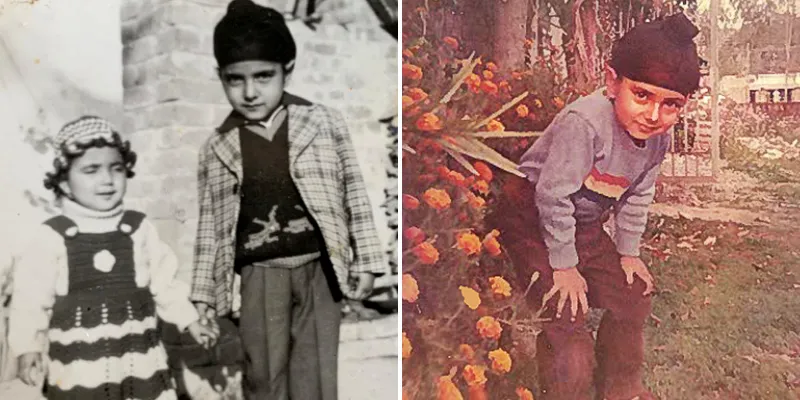
Ranveer did not step into a kitchen until the age of 13
Ranveer says he never set his foot inside a kitchen until the age of 13. An impulsive and restless kid, he would get bored sitting at the gurudwara on Sundays, and decided to spend time inside the kitchen where the langar was being cooked.

There was more action there, and more people to converse with. I was always driven by stories and conversations,” recalls the 41-year-old.
Recalling his first adventure with cooking, he says, once a lady who regularly cooked the meethe chawal (sweet rice) at the langar was unavailable, and the task of cooking fell on his plate.
“It’s very different when you cook yourself. Suddenly, all of it starts making sense because the magic kind of starts breaking down and the whole joy of creation takes over. And I was like, did I really make this,” Ranveer remembers.

Ranveer at the Gurudwara
After his first tryst with cooking at the gurudwara, he started exploring the cuisines of Lucknow and was mesmerised to see the passion with which people treated food. In the bylanes of Aminabad, Ranveer explored the Awadhi cuisine, and at the Chowk and the entire stretch of Bawarchi Tola he tasted authentic kebabs and biryanis.

"People in Lucknow take food very seriously. They will not even give you salt and you have to eat it the way it is cooked because it might be someone’s grandfather’s recipe. They have stories around food. So, for me it was a very powerful place to be.”
This is when he decided to become a chef. However, when he told his parents about his decision, they outright refused it. They worried for their family’s reputation, the lack of job security, and questioned the profession itself, recalls Ranveer.

Ranveer enjoys trying out various types of cuisine
But Ranveer was stubborn and remained firm in his decision, and the lack of his parental support only fueled his passion.

“I could never find sense in normal. I was just too used to questioning the norm even if it was irrational. I told my mother that I did not want to stay with them. They told me this was my teenage infatuation, and it will go away. I was like no, and I left home. I wanted to prove them wrong.”
Ranveer left home at the age of 17, and decided to learn under the tutelage of Muneer Ustad, a perfectionist and a traditional chef who had a stall of kebabs in Lucknow.
By the time he was 25, he became the youngest executive chef to have ever worked with a five-star hotel in India.
A passion for food
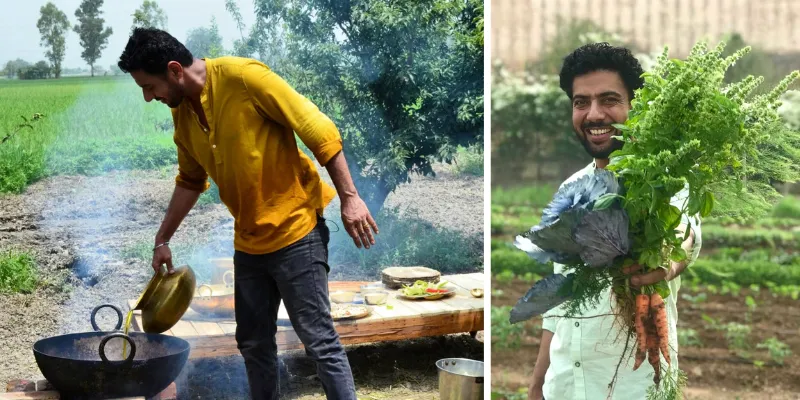
Ranveer discovered his passion for food early in life
While Ranveer followed his passion for cooking, what makes him unique is the story which he weaves around each recipe. His shows and his recipes are not a standard instruction manual to follow. Rather, he believes in taking his viewers on the journey of the recipe — from narrating about the era in which the food was conceptualised to using traditional cooking techniques and utensils.

“Even now, when I cook a recipe, I don’t want to cook a standard as normal is boring. With food, ease is very important. Food is like meditation, if you don’t have a right frame of mind, it is not going to turn out good. And my shows basically focus on how to cook in a good frame of mind,” Ranveer explains.
Over the past decade, Ranveer has produced and hosted several shows including Breakfast Xpress, Snack Attack, Homemade, The Great Indian Rasoi, Health Bhi Taste Bhi, Ranveer’s Cafe, Food Tripping, Thank God It’s Fryday, Global Cuisine, Raja Rasoi aur Andaaz Anokhaa, and Station Masters Tiffin. All his shows hinge on developing a dish which stays true to its local produce, local taste, and cooking methods.
The profession
Behind the glitz and glamour of being a chef who travels, hosts television shows, and has social media followers, there lies an untold story of hardships, long working hours, and mental stress.

“People like Sanjiv (Kapoor), Vikas (Khanna), and Kunal (Kapur) are end products of a long process. I’ve been cooking for 17 years before I came on television. People get obsessed with the packaging, but they don’t realise that the journey started somewhere and then it got here. The journey to the end-product might be inspiring or boring, but there is no product without the journey. And the glitz and glamour are at the end of the curve.”
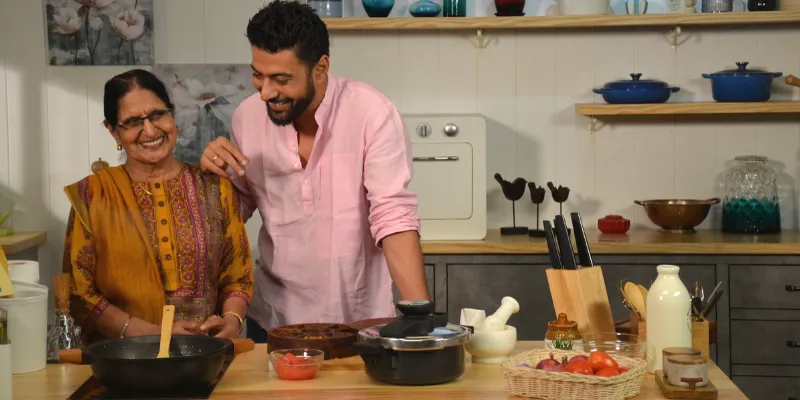
Ranveer recently launched his newest digital series "Maa Ki Baat", an heirloom YouTube show that will bring forth the secret recipes from India.
“In order to evolve as a food person, you don't have a choice, but to travel. You cannot mature as a chef or a food person if you don’t have a cultural perspective. So, everything comes at a cost,” says Ranveer.
Further, Ranveer advocates upcoming chefs to go beyond product endorsements and aspire to become a food entrepreneur. He says: “One can start from the ideation stage rather than just be a poster boy. So, you have to be updated not just about food, but the macroeconomics of food as well.”
Duties of being a chef
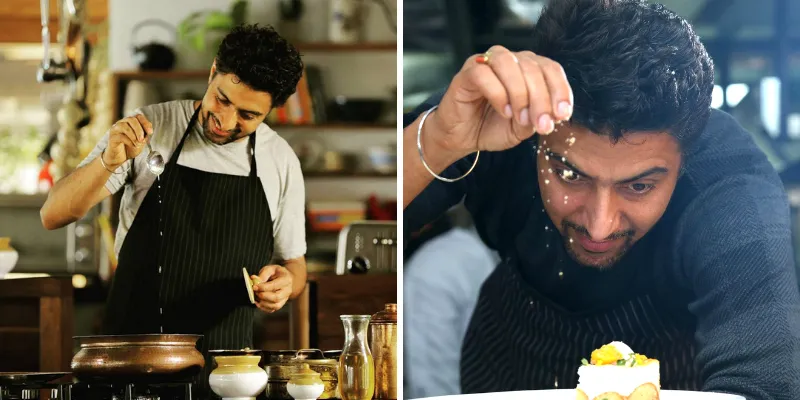
Experimentation is the name of the game
After spending nearly two decades in the culinary profession, Ranveer tells us about how the fast food culture and the entry of corporates in the agri business has eroded several native varieties of grains - paddy, wheat, and rice.

“I feel we are losing our native grains. We are getting obsessed in this whole macro-economics of the grain market and favouring just a few varieties. As a result, the ecosystem to grow our own native varieties has reduced drastically because of mono-cropping,” Ranveer explains.
With an aim to revive the native grains, Ranveer started a series called the ‘Indian Grain’ month on his social media channels. In the month of May, this year, Ranveer shared traditional recipes on his weekly cooking show promoting dishes which were made with supercrop millets. Earlier, in 2018, he worked with farmers who grew black soybean, another traditional grain legume grown and consumed in northern India.

“If I’ve taken the journey and I have a voice, and people listen to me, then I have to be able to say the right things and be at the right place at the right time. All this comes with a responsibility to deliver and make a difference in people’s lives. And you have got to deliver that responsibility with sincerity,” he says.
Presently, Ranveer is working with farmer producer groups, in association with Chennai-based startup Spirit of the Earth, to revive rice varieties that were presumably lost.







